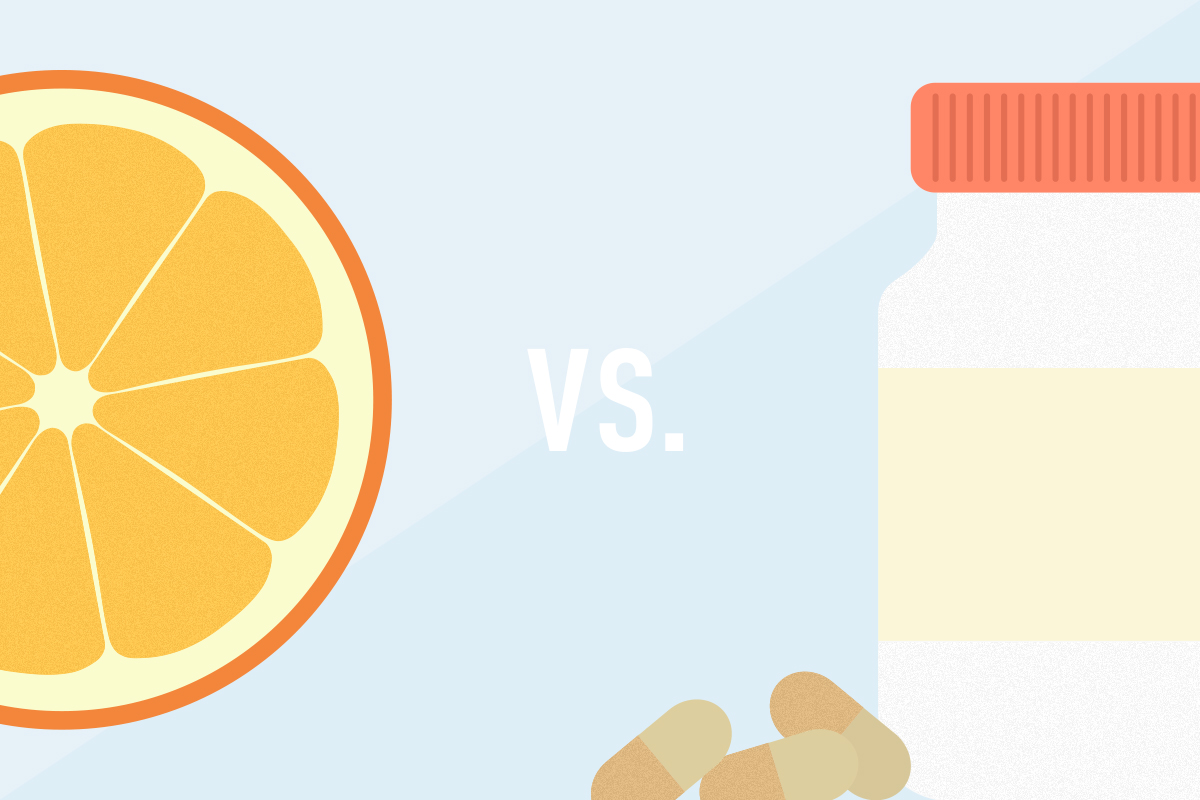Do you have the sniffles or is your immune system stressing? It’s likely that you’re suffering from a cold. Time to implement precautionary tactics, STAT! But what vitamin C supplement should you use?
Emergen c vs orange juice
Having a runny nose and scratchy throat is never fun. Some swear by citrus supplements like Emergen-C or Airborne to boost their immune systems, but are these over-the-counter remedies really better than sipping a glass of orange juice or noshing on a few clementines?
Oranges
Forget an apple a day: Peel yourself a juicy orange instead to pack in 130 percent of your daily required Vitamin C, over 170 different phytochemicals, and more than 60 flavonoids. These phytochemicals and flavonoids are antioxidants found in plant-based foods that are also linked to multiple health benefits, including disease prevention, a lowered risk of developing diabetes and a longer lifespan.
And that’s not all. An orange contains more than twice the daily needed amount of Vitamin C, which provides the boost your immune system craves when you feel a bug coming on. This vitamin, like phytochemicals and flavonoids, is an antioxidant that aids in the growth and repair of your body’s tissues–just what you need after grabbing a handful of pita chips from the same communal bowl your sniffly co-worker dug into.
Not a fan of an orange’s stringiness or pesky peel? Sip on a tall glass of orange juice, dig into a large grapefruit or add a serving of Mandarin oranges to an Asian-inspired salad. Still not convinced? The average adult needs about 65 to 90 milligrams of Vitamin C each day, and luckily, that comes in a variety of grocery store staples. So even a serving of strawberries, broccoli, tomatoes or Brussels sprouts can work to ward off any annoying cold symptoms.
Supplements
Sometimes (ok, very often), a cold hits when citrus fruits aren’t in season or you have no way of getting to the supermarket. Will the supplements stashed in your emergency sick kit suffice? As much as we want to believe those orange-colored tablets will instantly rid our body of the sickies, scientific evidence shows taking Vitamin C supplements won’t prevent a cold.
However, taking the vitamins a few days before a cold kicks in could shorten its stay by about one day. If you’re prone to catching colds, start taking the daily recommended amount of supplements at the beginning of the season to build up your body’s immunity.
Echinacea, similar to Vitamin C, is another supplement taken to prevent the onset of a cold or relieve cold symptoms like sore throat, cough and fever. The herb can most often be found in pill or tea form. One study showed that people with early symptoms of a cold who drank several cups of echinacea tea every day for five days felt better sooner than those who drank tea that did not contain the herb. Another trial found that the supplement reduced the duration of a cold by one to four days.
Though Vitamin C and echinacea supplements won’t eradicate a cold immediately, studies have shown taking several doses of these remedies each day before a cold sets in, or when you feel its symptoms coming on, can reduce its duration.
The Winner
Bottom line: We need Vitamin C for the growth and repair of our body’s tissues, but because we don’t produce or store the vitamin on our own, it’s up to us to get the nutrient through what we eat. However, our body doesn’t recognize whether we ingest Vitamin C through a tablet, fruit or vegetable.
If you’re still debating on whether to take a supplement multiple times each day or stock up your fridge with oranges, consider this: In addition to supplying 130 percent of your daily recommended amount of Vitamin C, an orange also contains high levels of fiber, potassium and Vitamin A, which reduces your risk of high cholesterol, heart disease and diabetes. Meanwhile, a Vitamin C supplement only contains, well, Vitamin C.







